News
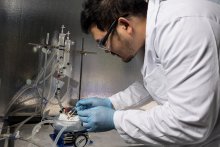
Researchers perform first successful transplant of functional cryopreserved rat kidney
Posted
In a groundbreaking new study, engineers and medical researchers at the University of Minnesota Twin Cities have proven the life-saving potential of long-term organ preservation at ultra-low temperatures by successfully transplanting a rewarmed kidney in a rat and restoring full kidney function.
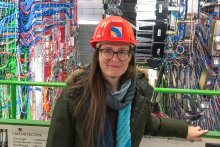
Armed with data from the world’s largest particle accelerator, CSE physics professor is on a mission to discover
Posted
University of Minnesota Assistant Professor Nadja Strobbe studies high-energy particle physics, and she and her team of students and researchers are on a quest to solve some of the Universe’s most mind-boggling mysteries.
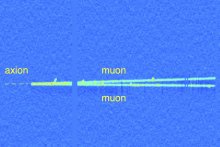
University of Minnesota theoretical physicists help expand the search for new particle
Posted
A team led by University of Minnesota Twin Cities physicists has discovered a new way to search for axions, hypothetical particles that could help solve some of nature’s most puzzling mysteries.
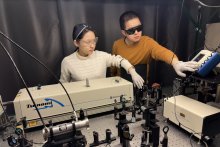
Researchers tune thermal conductivity of materials ‘on the fly’ for more energy-efficient devices
Posted
A team led by University of Minnesota Twin Cities researchers discovered a new method for tuning the thermal conductivity of materials, achieving a record-high range of tunability that will open a door to developing more energy-efficient and durable electronic devices.
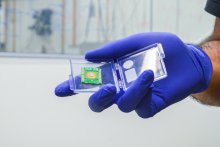
New superconducting diode could improve performance of quantum computers and artificial intelligence
Posted
A University of Minnesota Twin Cities-led team developed a more energy-efficient, tunable superconducting diode—a promising component for future electronic devices—that could help scale up quantum computers for industry and improve artificial intelligence systems.
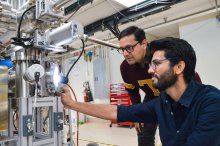
Stretching metals at the atomic level allows researchers to create important materials for quantum, electronic, and spintronic applications
Posted
A University of Minnesota Twin Cities-led team has developed a first-of-its-kind breakthrough method that makes it easier to create high-quality metal oxide films that are important for various next generation applications such as quantum computing and microelectronics.

First-of-its-kind measurement of the Universe’s expansion rate weighs in on a longstanding debate in physics and astronomy
Posted
A University of Minnesota Twin Cities-led team used a first-of-its-kind technique to measure the expansion rate of the Universe, providing insight that could help more accurately determine the Universe’s age and help physicists and astronomers better understand the cosmos.
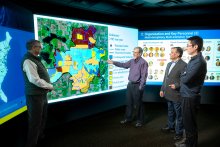
University of Minnesota to lead new $20M AI Institute focusing on climate-smart agriculture and forestry
Posted
The University of Minnesota Twin Cities received a $20 million grant from the National Science Foundation and the USDA National Institute of Food and Agriculture to lead a new research institute that will leverage artificial intelligence to help absorb and store carbon in farms and forests.
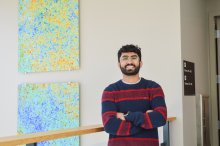
CSE senior Akshay Naik’s undergrad journey include research and mental health advocacy
Posted
Computer engineering senior Akshay Naik discusses the highlights of his University of Minnesota journey, his passion for mental health, and why he strives to be an expert in his field.
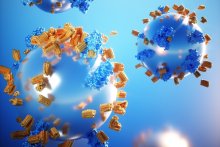
U of M researchers develop technique for rapid detection of neurodegenerative diseases like Parkinson’s and Chronic Wasting Disease
Posted
University of Minnesota Twin Cities researchers have developed a groundbreaking new diagnostic technique that will allow for faster and more accurate detection of neurodegenerative diseases that affect humans, such as Alzheimer's and Parkinson's, and similar diseases that affect animals, such as chronic wasting disease (CWD) and mad cow disease.
